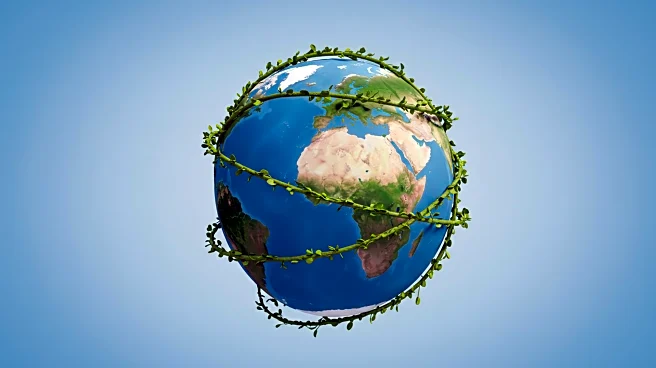What is the story about?
What's Happening?
The UK is being encouraged to enhance its climate and environmental cooperation with the EU to address shared challenges effectively. The North Sea has significant potential as a renewable energy hub, yet the UK remains an observer in the North Seas Energy Cooperation (NSEC). The EU's Nature Restoration Law sets ambitious targets for ecosystem restoration, contrasting with the UK's less ambitious commitments. Rejoining the European Environment Agency (EEA) and aligning with EU standards could improve the UK's environmental governance and reduce costs associated with regulatory divergence.
Why It's Important?
Strengthening cooperation with the EU could enhance the UK's ability to tackle ecological challenges, improve environmental governance, and reduce costs related to regulatory divergence. Aligning with EU standards would provide access to comprehensive environmental data and methodologies, reinforcing the UK's credibility as a climate leader. This cooperation is crucial for addressing the economic impacts of divergence, such as increased electricity costs and regulatory duplication in the chemicals industry.
What's Next?
The UK may consider rejoining the EEA and aligning its environmental standards with the EU to improve governance and reduce costs. This could lead to closer energy cooperation, promoting investment in renewables and providing stability in a volatile global landscape. The UK could also replicate the EU's Social Climate Fund to address the social impacts of climate policies.
Beyond the Headlines
The call for enhanced cooperation highlights the interconnected nature of environmental challenges and the need for collaborative solutions. It underscores the importance of aligning policies and standards to achieve shared climate goals and mitigate the impacts of divergence.

















